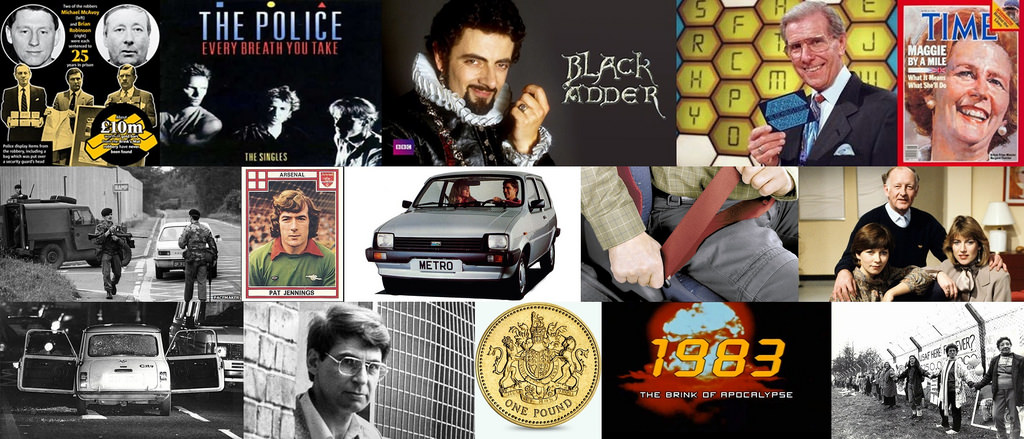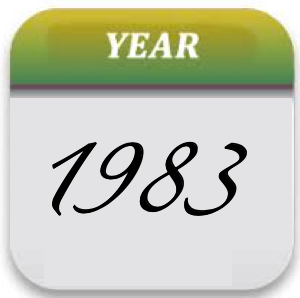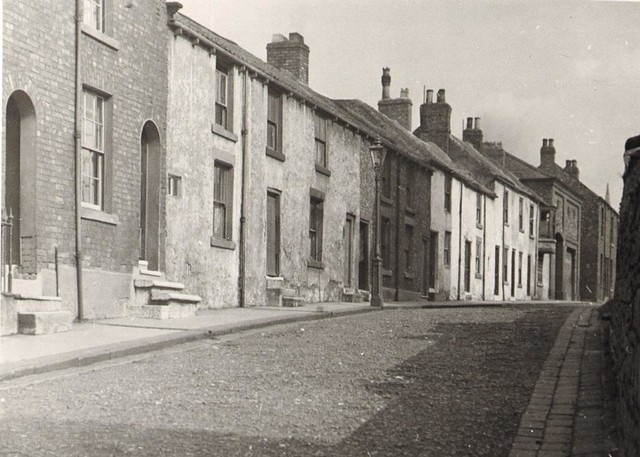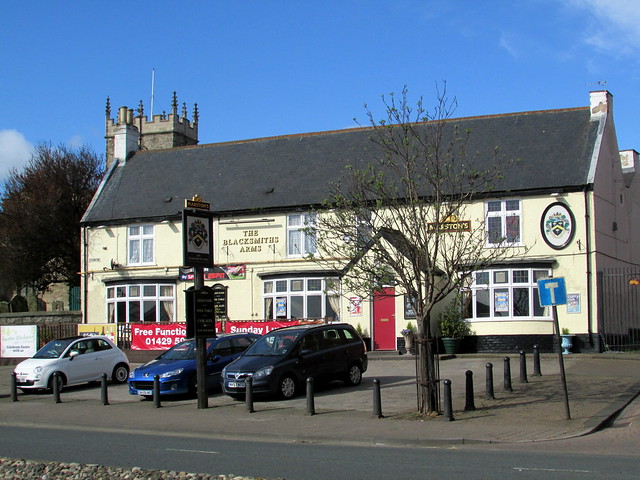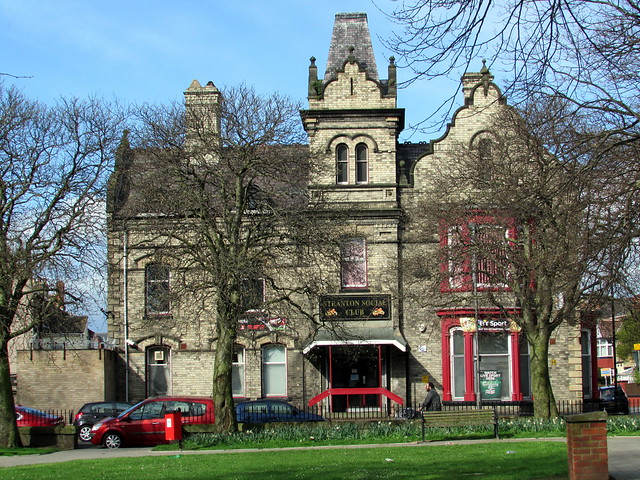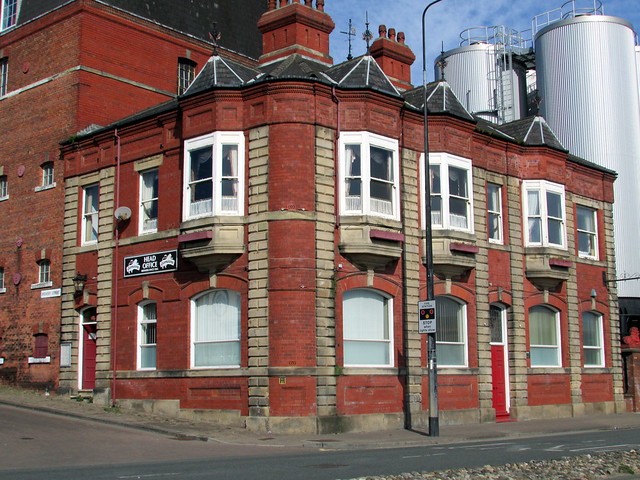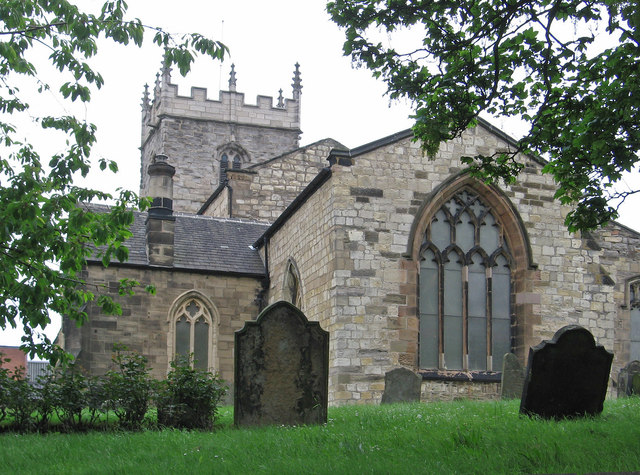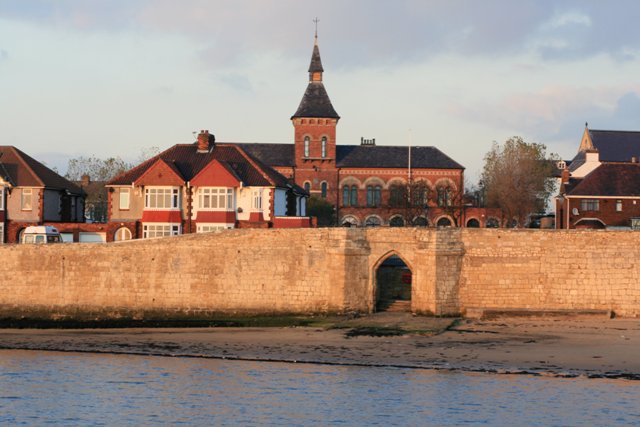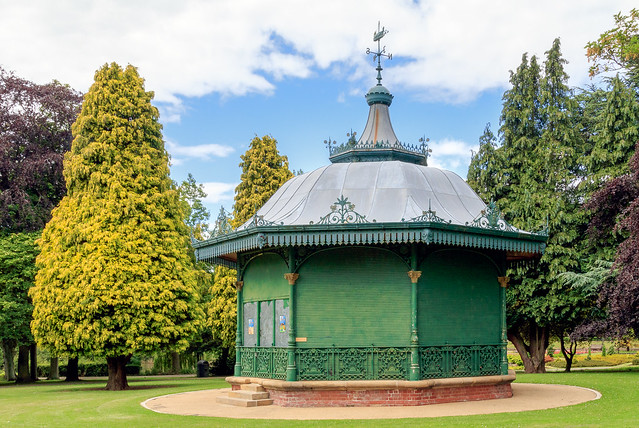That Was the Year That Was - 1983

-
Description
1983 The worlds most popular word processing programme is launched Microsoft Word. Following on from the start of the recession in the US Unemployment Rises to 12 million. In Ethiopia following the worst drought in history the death toll reaches a staggering 4 million. The US starts deploying Cruise Missiles and Pershing Missiles in Europe at the Greenham Common Air Force Base in England and West Germany amid mass protests. 1983: Thatcher wins landslide victory Margaret Thatcher's Conservative Party has won a landslide second term election victory, taking 397 seats to Labour's 209. The SDP Liberal Alliance, fighting its first national contest, won just 23 seats under the "first-past-the-post" electoral system, despite receiving nearly as many votes as Labour. Mrs Thatcher announced the forthcoming parliament would have a "heavy programme", featuring some of the bills which fell before the election. She also pledged to re-organise local authorities and to introduce bills on trade unions and rates. Parliament is to meet for the first time next week, when the speaker of the House will be sworn in. The prime minister said her first priority for the new term would be to reshuffle her cabinet. She insisted it would reflect a range of political views, saying, "I haven't been extreme for the last four years and I'm not extreme now." Defeated Labour Party leader Michael Foot described the result as a tragedy for the country. He said: "I agree with those who said the fight to win the next election starts immediately and of course I accept, to the full, my responsibilities in this election." Mr Foot strongly attacked the SDP for siphoning support away from Labour - giving more seats to the Conservatives. The SDP Liberal Alliance blamed Britain's "winner takes all" electoral system on its failure to convert its significant electoral support into seats in parliament. David Steel said: "I feel a real sense of outrage at the vast number of votes we picked up with so little to show for it in the way of seats." September 26th, 1983: The day the world almost died It has been described as "one of the most dangerous episodes of the Cold War" – possibly the closest the planet has ever come to a nuclear war, and even more dangerous than the Cuban Missile Crisis. The Soviet Union and the United States stood on the brink of nuclear war, when paranoid Soviet leaders, terrified that a NATO military exercise codenamed Able Archer 83 was a cover for a surprise nuclear attack on the Warsaw Pact, placed their own nuclear forces on alert ready to respond. Stanislav Petrov, a lieutenant-colonel in the military intelligence section of the Soviet Union's secret service, reluctantly eased himself into the commander's seat in the underground early warning bunker south of Moscow. It should have been his night off but another officer had gone sick and he had been summoned at the last minute. Before him were screens showing photographs of underground missile silos in the Midwest prairies of America, relayed from spy satellites in the sky. He and his men watched and listened on headphones for any sign of movement - anything unusual that might suggest the U.S. was launching a nuclear attack. This was the height of the Cold War between the USSR and the U.S. Both sides packed a formidable punch - hundreds of rockets and thousands of nuclear warheads capable of reducing the other to rubble. It was a game of nerves, of bluff and counterbluff. Who would fire first? Would the other have the chance to retaliate? The flying time of an inter-continental ballistic missile, from the U.S. to the USSR, and vice-versa, was around 12 minutes. If the Cold War were ever to go 'hot', seconds could make the difference between life and death. Everything would hinge on snap decisions. For now, though, as far as Petrov was concerned, more hinged on just getting through another boring night in which nothing ever happened. Except then, suddenly, it did. A warning light flashed up, screaming red letters on a white background - 'LAUNCH. LAUNCH'. Deafening sirens wailed. The computer was telling him that the U.S. had just gone to war. The blood drained from his face. He broke out in a cold sweat. But he kept his nerve. The computer had detected missiles being fired but the hazy screens were showing nothing untoward at all, no tell-tale flash of an missile roaring out of its silo into the sky. Could this be a computer glitch rather than Armageddon? Instead of calling an alert that within minutes would have had Soviet missiles launched in a retaliatory strike, Petrov decided to wait. The warning light flashed again - a second missile was, apparently, in the air. And then a third. Now the computer had stepped up the warning: 'Missile attack imminent!' But this did not make sense. The computer had supposedly detected three, no, now it was four, and then five rockets, but the numbers were still peculiarly small. It was a basic tenet of Cold War strategy that, if one side ever did make a preemptive strike, it would do so with a mass launch, an overwhelming force, not this dribble. Petrov stuck to his common-sense reasoning. This had to be a mistake. What if it wasn't? What if the holocaust the world had feared ever since the first nuclear bombs dropped on Japan in 1945, was actually happening before his very eyes - and he was doing nothing about it? He would soon know. For the next ten minutes, Petrov sweated, counting down the missile time to Moscow. But there was no bright flash, no explosion 150 times greater than Hiroshima. Instead, the sirens stopped blaring and the warning lights went off. The alert on September 26th, 1983 had been a false one. Later, it was discovered that what the satellite's sensors had picked up and interpreted as missiles in flight was nothing more than high-altitude clouds. Petrov's cool head had saved the world. How much could your quid buy in 1983? The purchasing power of the £1 coin has changed considerably since it first became legal tender. A loaf of bread cost 38p in 1983. A pint of milk was just 21p in 1983. A £1 coin would have stretched to a whole pint of lager back in 1983. The coin was first issued on April 21, 1983, and was designed to be easy to make out from other loose change. This has not stopped it from being targeted by counterfeiters - and almost three in every 100 pound coins are thought to be duds. 1983: Nilsen 'strangled and mutilated' victims Civil servant Dennis Nilsen has gone on trial at the Central Criminal Court accused of six murders and two attempted murders. Mr Nilsen, aged 37, from Cranley Gardens in Muswell Hill, north London, was arrested after human remains were found in a blocked drain at his home. The court heard Mr Nilsen had later told police he had killed 15 or 16 people. He denies all charges of murder and attempted murder. Nilsen was convicted on all counts on 4 November 1983 and sentenced to life in prison. The judge ordered he should not be eligible for parole for at least 25 years. During his time in prison Nilsen has written his autobiography, titled "The Drowning Man". He sent it to a publisher, but the manuscript was seized by the prison authorities and became the subject of a court battle. In March 2002 Nilsen lost his bid to have the book published uncensored. His lawyer argued it was a breach of his human rights to vet the manuscript but the argument was rejected and he was refused leave to appeal. Two years later, in May 2004 a panel of three Appeal Court judges, headed by Lord Justice Brooke, ruled there were "compelling reasons" why the court should hear the appeal. 1983: Man shot by police hunting David Martin A man has been critically injured in a police ambush in a west London street in what may be a case of mistaken identity. Witnesses said marksmen surrounded a car in a traffic jam in Pembroke Road in Earls Court and opened fire. The driver was shot several times in the head and body. Scotland Yard said the ambush was part of an operation to recapture escaped prisoner David Martin. The man shot in the ambush was later named as Stephen Waldorf. Film editor Mr Waldorf, 26, had no direct connection to David Martin. But police believed his female passenger, Sue Stephens, to be Mr Martin's girlfriend. Two officers, John Jardine and Peter Finch, stood trial for attempted murder and attempted wounding but were cleared of all charges in October 1983. The pair remained in the police force but were barred from firearm duties. Stephen Waldorf made a full recovery and eventually received £150,000 compensation. David Martin was recaptured soon after the shooting but hanged himself in jail in 1984 before his trial. 1983 Timeline 1 January - The British Nationality Act 1981 comes into effect creating five classes of British nationality. 3 January - CITV is launched. 6 January - Danish fishermen defy the British government's prohibition on non-UK boats entering its coastal waters. 14 January - Stephen Waldorf shooting: Armed policeman shoot and severely injure an innocent car passenger in London, believing him to be escaped prisoner David Martin. 17 January - First British breakfast time television programme, Breakfast Time, broadcast by the BBC. The wearing of seatbelts becomes compulsory in the front of passenger cars, eleven years after they become compulsory equipment on new cars sold in Britain. 19 January - The two policemen who wounded Stephen Waldorf are charged with attempted murder and released on bail; they are suspended from duty pending further investigation. 23 January - The ban on non-British boats in British waters is lifted as the European Economic Community's Common Fisheries Policy comes into effect. 25 January - The Infrared Astronomical Satellite, the first-ever space-based observatory to perform a survey of the entire sky at infrared wavelengths, is launched. The satellite is a joint project between the American space agency NASA, the Netherlands Agency for Aerospace Programmes and the UK's Science and Engineering Research Council. 26 January - Red rain falls in the UK, caused by sand from the Sahara Desert in the droplets. 28 January - Escaped prisoner David Martin is re-arrested. 31 January - Seatbelt use for drivers and front seat passengers becomes mandatory, 11 years after becoming compulsory equipment. 1 February - TV-am broadcasts for the first time. 3 February - Unemployment stands at a record high of 3,224,715 - though the previous high reached in the Great Depression of the early 1930s accounted for a higher percentage of the workforce. 10 February - The dismembered remains of at least fifteen young men are found at a house in Muswell Hill, North London, victims of Dennis Nilsen. 15 February - The Austin Metro is now Britain's best selling car, having outsold every other new car registered in the UK during January. 24 February - Labour candidate Peter Tatchell loses the Bermondsey by-election to the Liberal Party's Simon Hughes. The Official Monster Raving Loony Party first contests an election under this label. 26 February - Patrick Jennings, 37-year-old Arsenal and Northern Ireland goalkeeper, becomes the first player in the English game to appear in 1,000 senior football matches. March - The compact disc (CD) goes on sale in the United Kingdom. 1 March - Austin Rover, the successor organisation to British car making combine British Leyland, launches the Austin Maestro. The Maestro is a medium-sized five-door hatchback with front-wheel drive. It replaces the ageing Allegro, which finished production last year, and provides the firm with a modern and practical competitor to the likes of the Ford Escort, Vauxhall Astra and Volkswagen Golf. A state of the art voice synthesizer is used on the top models, claiming it to be the world's first talking car. The Maestro's chassis will also form the base of a larger four-door saloon which goes on sale next year to replace the outdated Morris Ital. 15 March - The Budget raises tax allowances, and cuts taxes by £2 billion. 26 March - Liverpool win the Football League Cup for the third year in succession, beating Manchester United 2-1 in the final at Wembley Stadium. The Reds, whose manager Bob Paisley will retire at the end of the current football season, are also on course to win the Football League First Division title for a record 14th time. 28 March - Ian MacGregor appointed as head of the National Coal Board. April - Vauxhall launches the Nova supermini with a range of three-door hatchbacks and two-door saloons. It is the first Vauxhall to be built outside the United Kingdom, being assembled at the Zaragoza plant in Spain where it was launched seven months ago as the Opel Corsa, but plans to launch it on the British market had been attacked by trade unions who were angry at the fact that it would not be built in Britain. Its launch is expected to result in the end of Vauxhall Chevette production in Britain. 1 April - Thousands of protesters form a 14-mile human chain in reaction to the siting of American nuclear weapons in British military bases. The government expels three Russians named as KGB agents by a Soviet defector. 4 April - The biggest cash haul in British history sees gunmen escape with £7 million from a Security Express van in London. 11 April - Richard Attenborough's 1982 film Gandhi wins eight Academy Awards. 21 April - The one pound coin introduced in England and Wales. 9 May - Margaret Thatcher calls a general election for 9 June. Opinion polls show her on course for victory with the Tories 8-12 points ahead of Labour, but it widely expected to form a significant overall majority due to the split in left-wing votes caused by the Alliance, who are now aiming to take Labour's place in opposition. 16 May - Wheel clamps are first used to combat illegal parking in London. 21 May - Manchester United and Brighton & Hove Albion draw 2-2 in the FA Cup final at Wembley Stadium. The replay will be held in five days time. 26 May - Manchester United defeat Brighton & Hove Albion 4-0 in the FA Cup final replay at Wembley Stadium. Bryan Robson scores two of the goals, with the other two coming from Arnold Muhren and 18-year-old Norman Whiteside. Opinion polls suggest that the Conservatives are looking set to be re-elected with a landslide. A MORI poll puts them on 51%, 22 points ahead of Labour. 1 June - Jockey Lester Pigott rides Teenoso to victory at the Epsom Derby, Pigott's ninth win. 9 June - Margaret Thatcher, Conservative Prime Minister of the United Kingdom since 1979, wins a landslide victory with a majority of 144 seats (through just 42% of the popular vote) over Michael Foot, who led a highly divided and weakened Labour Party which earned only 28% of the vote. Among the new members of parliament are two Labour MP's, Tony Blair for Sedgefield in County Durham and Gordon Brown for Dunfermline East in Scotland. The election is also a disappointment for the SDP-Liberal Alliance, who come close behind Labour in votes but are left with a mere 23 MPs in the new parliament compared to Labour's 209. The new 650-seat parliament will have 397 Conservative MP's, whereas Labour now has just 209. 10 June - Computer tycoon Clive Sinclair is knighted. 12 June - Michael Foot resigns as leader of the Labour Party. Neil Kinnock, shadow spokesman for education and MP for Islwyn in South Wales, is tipped to succeed him; however, the successor will not be confirmed until this autumn. 14 June - Roy Jenkins resigns as leader of the SDP and is succeeded by David Owen. Although the SDP gained 25% (around 7 million) of the votes and fell just short of Labour in terms of votes, they attained only a fraction of the number of seats won by Labour. 15 June - The first episode of historical sitcom Blackadder is broadcast on BBC One. 16 June - National Museum of Photography, Film and Television opens in Bradford. 7 July - New chancellor Nigel Lawson announces public spending cuts of £500 million. 13 July - Neil Kinnock escapes uninjured when his Ford Sierra overturns on the M4 motorway in Berkshire. MP's vote 361-245 against the reinstatement of the death penalty, 18 years after its abolition. 16 July - A Helicopter crash occurred on the Isles of Scilly, killing 20. 19 July - A large new model of a flesh-eating dinosaur is erected at the Natural History Museum. 21 July - Former prime minister Harold Wilson is one of 17 life peerages announced today, having stood down from parliament last month after 38 years as MP for Huyton, near Liverpool. 22 July - Production of the Ford Orion four-door saloon begins. The Orion is based on the same mechanicals as the Escort, but is also aimed at buyers of larger family saloon cars like the recently discontinued Cortina. 26 July - A Catholic mother of ten, Victoria Gillick, loses a case in the High Court of Justice against the DHSS. Her application sought to prevent the distribution of contraceptives to children under the age of 16 without parental consent. The case goes to the House of Lords in 1985 when it is decided that it is legal for doctors to prescribe contraceptives to under-16s without parental consent in exceptional circumstances ("Gillick competence"). August - The second generation Ford Fiesta is launched, featuring a major restyle of the original model which began production seven years ago and was faced with a host of new competitors in recent months from Vauxhall, Peugeot, Fiat and Nissan. 1 August - The new A-prefix car registration plates are launched, helping spur on the recovery in car sales following the slump at the start of the decade caused by the recession. 5 August - 22 Provisional Irish Republican Army (IRA) members receive sentences totalling over 4,000 years from a Belfast Court. 29 August - ITV launches Blockbusters, a gameshow hosted by Bob Holness and featuring sixth formers as its contestants. 1 September - Ian MacGregor becomes chairman of the National Coal Board. 8 September - The National Health Service privatises cleaning, catering and laundering services in a move which Social Services Secretary Norman Fowler predicts will save between £90 million and £180 million a year. 11 September - The SDP Conference voted against a merger with the Liberals until at least 1988. 21 September - The England national football team lose 1-0 to Denmark at Wembley Stadium in the penultimate qualifying game for Euro 84, making qualification unlikely. 22 September - Docklands redevelopment in East London begins with the opening of an Enterprise Zone on the Isle of Dogs. 25 September - Maze Prison escape: 38 IRA prisoners armed with six guns hijack a lorry and escape from HM Prison Maze in County Antrim, Northern Ireland; one guard dies of a heart attack and 20 others are injured in the attempt to foil the escape, the largest prison escape since World War II and in British history. 19 escapees are later apprehended. 30 September - In the latest crackdown on football hooliganism, seven men (all members of the notorious Subway Army, a football firm associated with Wolverhampton Wanderers F.C.) are convicted of taking part in a fight near the club's stadium. 2 October - Neil Kinnock is elected leader of the Labour Party following the retirement of Michael Foot. Kinnock attracted more than 70% of the votes, and names Roy Hattersley (who came second with nearly 20%) as his deputy. 4 October - Richard Noble, driving the British turbojet-powered car Thrust2, takes the land speed record to 634.051 mph (1020.406 km/h) over 1 km (633.47 mph (1019.47 km/h) over 1 mile) at Black Rock Desert in the United States, an increase of 40 mph over the previous kilometre record. 7 October - A plan to abolish the Greater London Council is announced. 14 October - Cecil Parkinson resigns as Trade and Industry Secretary following revelations about his relationship with Sarah Keays. 19 October - Shooting of Stephen Waldorf: The two Metropolitan policemen who mistakenly shot and wounded Stephen Waldorf in January are cleared of attempted murder. 22 October - Over a million people demonstrate against nuclear weapons at a Campaign for Nuclear Disarmament march in London. 24 October - Arthur Hutchinson kills three members of the Laitner family and rapes their daughter in the Sheffield suburb of Dore. Dennis Nilsen goes on trial at the Central Criminal Court accused of six murders and two attempted murders. He confesses to murdering "15 or 16" men. 25 October - American forces invade the Commonwealth country of Grenada. Roy Griffiths presents his report on general management of the National Health Service. 4 November - Dennis Nilsen is sentenced to life imprisonment. 13 November - The first United States cruise missiles arrive at RAF Greenham Common in Berkshire amid protests from peace campaigners at the Greenham Common Women's Peace Camp. Gerry Adams takes office as elected leader of Sinn Féin. 16 November - England beat Luxembourg 4-0 in their final Euro 84 qualifying game but still fail to qualify for next summer's tournament in France as Denmark also win their final qualifying game. After the game, more than 20 England fans are arrested after going on a violent rampage in Luxembourg. 18 November - Walton sextuplets: 31-year-old Liverpool woman Janet Walton gives birth to female sextuplets following fertility treatment. 23 November - The 23-mile M54 motorway opens, giving the M6 north of Wolverhampton a link with the new town of Telford in Shropshire. 24 November - Fifteen-year-old Lynda Mann is found raped and strangled in the village of Narborough, Leicestershire. 26 November - Brink's-MAT robbery: In London, 6,800 gold bars worth nearly £26 million are taken from the Brink's-MAT vault at Heathrow Airport. Only a fraction of the gold is ever recovered, and only two men are convicted of the crime. 4 December - An SAS undercover operation ends in the shooting and killing of two IRA gunmen, a third is injured. 6 December - First heart and lung transplant carried out in Britain at Harefield. 8 December - The House of Lords votes to allow television broadcast of its proceedings. 10 December - William Golding wins the Nobel Prize in Literature "for his novels which, with the perspicuity of realistic narrative art and the diversity and universality of myth, illuminate the human condition in the world of today". 17 December - An IRA car bomb kills six, three police and three members of the public, and injures 90 outside Harrods in London. 25 December (Christmas Day) - A second IRA bomb explodes in Oxford Street, but this time nobody is injured. The Compact disc is first marketed in Britain. Designer and entrepreneur James Dyson produces his prototype vacuum cleaner. Hanson Trust takes over United Drapery Stores (UDS) to realise the assets of its high street shops. Thames Water shuts down the reciprocating stationary steam engines at its Waddon pumping station in Croydon, the last in Britain to pump drinking water by steam. Saga Magazine begins publication. Despite unemployment remaining in excess of 3 million, the battle against inflation which has largely contributed to mass unemployment is being won as inflation falls to 4.6% - the lowest level since 1966. The economic recovery continues with 4.7% overall growth for the year - the highest for any year since 1973. The year also sees unbroken economic growth for the first time since 1978. Japanese carmaker Nissan, which plans to open a factory in Britain by 1986, drops the Datsun marque on British registered cars after nearly two decades and adopts the Nissan brand in its place. Television BBC Breakfast television, launched "Breakfast Time" in 1983. Considered a "huge risk" when it first aired on 17 January 1983, the programme was the UK's first regular national breakfast show. Frank Bough and Selina Scott were the presenters. 3 January – Children's ITV premieres on ITV. 1 February – TV-am launches, with Good Morning Britain 6 February – The Australian soap opera Sons and Daughters makes its British television debut when Central becomes the first ITV region to begin screening the programme. All other ITV regions soon follow suit. 8 February – Minipops premieres on Channel 4. Though a ratings success, it is axed after only one series due to heavy media criticism. 23 February – After months of "will she or won't she?" drama, Deirdre Barlow (Anne Kirkbride) makes the choice to break up with Mike Baldwin (Johnny Briggs) and reunite with her estranged husband Ken (William Roache) on Coronation Street. The episode was one of the highest-rated in the soap's history. 11 May – Peter Adamson makes his last appearance as Len Fairclough on Coronation Street. 9 June-10 June – BBC1 and ITV broadcast coverage of the 1983 general election. 15 June – The first episode of The Black Adder, the first in the successful Blackadder series of sitcoms, debuts on BBC One. 27 June – The shareholders of Satellite Television agree a £5 million offer to give News International 65% of the company. 16 August – ITV broadcasts Woodentop as part of its Storyboard series. It would later be turned into a series and re-titled The Bill, commencing in October 1984 and lasting until August 2010. 29 August – Blockbusters is launched on ITV, hosted by Bob Holness and features sixth-formers as contestants. 6 September – ITV broadcasts Killer. It would later be turned into a series and re-titled Taggart. 12 October – Doris Speed makes her last appearance as Annie Walker on Coronation Street. 23 November – 20th anniversary of the first broadcast of Doctor Who. ITV's animated series Danger Mouse viewing figures reach 21.59 million, an all-time high for a British children's programme. BBC1 17 January – Breakfast Time (1983–1989) 17 February – Gran (1983) 15 June – Blackadder (1983–1989) 22 September – Just Good Friends (1983–1986) 3 October – Bananaman (1983–1986) 24 October – Sixty Minutes (1983–1984) 25 October – Don't Wait Up (1983–1990) BBC2 10 March – Tucker's Luck (1983–1985) ITV 3 January – CITV (Afternoon block 1983–2007, Morning block 1983–present) 10 January – Alphabet Zoo (1983–1984) 1 February – Good Morning Britain (1983–1992) TV-am (1983–1992) 5 April – First Tuesday (1983–1993) 16 April – Philip Marlowe, Private Eye (1983–1986) 29 August – Blockbusters (1983–93, 1994–95, 1997, 2000–01, 2012) 6 September – Taggart (1983–2011) 12 September – Dramarama (1983–1989) 16 October – Agatha Christie's Partners in Crime (1983–1984) 23 October – Highway (1983–1993) 30 November – Up the Elephant and Round the Castle (1983–1985) 27 December – The Wind in the Willows (1983–1990) Channel 4 8 February – Minipops (1983) Music 8 January – The UK singles chart is tabulated from this week forward by The Gallup Organization. In 1984 electronic terminals will be used in selected stores to gather sales information, and the old "sales diary" method will be gradually phased out over the next few years. 20 August – The Rolling Stones sign a new $28 million contract with CBS Records, the largest recording contract in history up to this time. 1 September – Joe Strummer and Paul Simonon of The Clash issue a press statement announcing that Mick Jones has been fired from the group. 20 September – The first ARMS Charity Concert is held at the Royal Albert Hall in London. 28 November – The first ever Now album is released in the shops. Charts Number one singles "Save Your Love" - Renée and Renato "You Can't Hurry Love" - Phil Collins "Down Under" - Men at Work "Too Shy" - Kajagoogoo "Billie Jean" - Michael Jackson "Total Eclipse of the Heart" - Bonnie Tyler "Is There Something I Should Know?" - Duran Duran "Let's Dance" - David Bowie "True" - Spandau Ballet "Candy Girl" - New Edition "Every Breath You Take" - The Police "Baby Jane" - Rod Stewart "Wherever I Lay My Hat (That's My Home)" - Paul Young "Give It Up" - KC and the Sunshine Band "Red Red Wine" - UB40 "Karma Chameleon" - Culture Club "Uptown Girl" - Billy Joel "Only You" - The Flying Pickets -
Owner
brizzle born and bred -
Source
Flickr (Flickr) -
License
What does this mean? Attribution-NonCommercial-ShareAlike License
-
Further information
Link: https://www.flickr.com/photos/20654194@N07/17374875534/
Resource type: Image
Added by: Peter Smith
Last modified: 7 years, 11 months ago
Viewed: 1023 times
Picture Taken: 2015-05-23T10:38:42 -
Co-Curate tags
